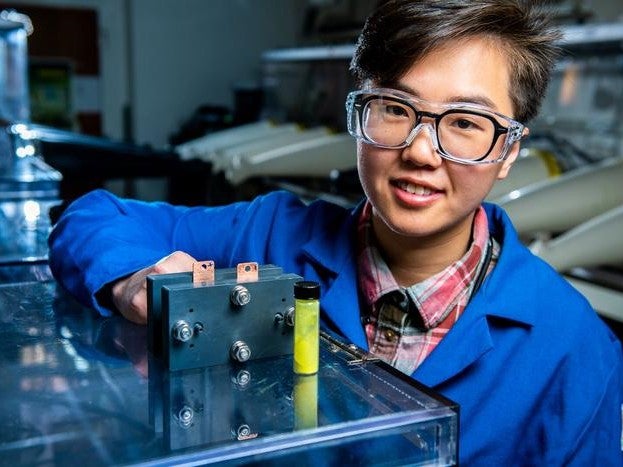Record-breaking sugar battery could supercharge transition to renewable energy
Grid-scale battery system capable of storing vast amounts of energy when solar and wind production is low
Scientists have used sugar to create a record-breaking battery capable of storing grid-scale energy for more than a year.
The breakthrough could help speed up the transition to renewable energy sources, which require vast amounts of battery storage in order to avoid relying on fossil fuels to meet demand when solar or wind output is low.
A team from the US Department of Energy’s Pacific Northwest National Laboratory (PNNL) made the latest discovery while researching flow batteries, which use two liquid-filled chambers to produce an electrochemical reaction to store and release energy.
Flow batteries have the potential to be scaled up to the size of football fields, capable of storing vast amounts of energy, however current methods for creating them rely on mined minerals that are difficult and costly to obtain.
“This is a brand new approach to developing flow battery electrolyte,” said Wei Wang, a battery researcher who led the investigation into the new method. “We showed that you can use a totally different type of catalyst designed to accelerate energy conversion.”
The researchers used a dissolved simple sugar called β-cyclodextrin, which is a derivative of starch, in order to boost their flow battery’s longevity and capacity.
The system achieved 60 per cent more peak power than current methods, while also being capable of storing and releasing energy for more than a year continuously.

The latest advance makes the next-generation battery design “a candidate for scale up”, according to the researchers.
“We cannot always dig the Earth for new materials,” said Imre Gyuk, director of energy storage research at DOE’s Office of Electricity.
“We need to develop a sustainable approach with chemicals that we can sythesize in large amounts – just like the pharmaceutical and the food industries.”
A study detailing the research, titled ‘Proton-regulated alcohol oxidation for high-capacity ketone-based flow battery anolyte’, was published in the scientific journal Joule.
Join our commenting forum
Join thought-provoking conversations, follow other Independent readers and see their replies
Comments

Bookmark popover
Removed from bookmarks